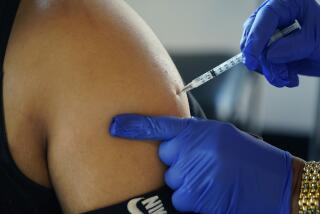Mexican Firm Following Growth Strategy
- Share via
MONTERREY, Mexico — The message to investors from Mexican conglomerate Empresas La Moderna S.A. these days is simple enough: If you believe in agrobiotechnology, bet on a company like ours.
Decaffeinated coffee beans that grow on the bush, ripe tomatoes that won’t rot on supermarket shelves for weeks, and biodegradable plastics made from an enzyme in peas are just some of the products La Moderna is creating.
“I think agrobiotechnology is like the computer industry 20 years ago . . . and we were smart enough to get in early,” said Alfonso Romo, CEO of La Moderna.
La Moderna last month sold the grains division of its seed company Seminis, the world’s largest, to U.S. agricultural giant Monsanto. Moderna will keep Seminis’ larger vegetable seed division, where it sees a brighter future.
The deal is the first divestiture for Moderna after an acquisition binge in the past two years that broadened its scope from Mexico’s biggest cigarette company into a conglomerate with interests in forest products and packaging, and agrobiotechnology, which includes a seeds and fresh vegetables division.
In diversifying, La Moderna has gone from making nearly all its revenue from cigarettes to around half. Total company revenue totaled $1.23 billion in 1995, of which about $658 million came from cigarette sales.
The pace of Moderna’s expansion led to some worries about its ability to service its dollar debt after the 1994 peso crash, even though the company boosted its level of dollar revenues from less than 5% of total sales to almost half.
Some analysts also questioned whether Moderna was gobbling up companies without mapping out a clear strategy.
Moderna says the grains division sale was a strategic move to focus on vegetable seeds, where it is twice the size of its nearest competitor, while the company did not think it could become a world leader in grains.
“In this business, it is important to have a strong research position,” Romo said. “When we bought Asgrow two years ago, we realized we didn’t have a clear objective [for the grains division], but we decided to give it two years to see if we could become leaders. . . . We realized we could not. We got there late,” he said.
Monsanto, which acquired grains seed company DeKalb Genetics Corp. last year, was in a more dominant position in grains and willing to pay top dollar for further expansion, especially because of Seminis’ work in soybeans, Romo said.
Moderna sold the grains division for $240 million, three years after the company paid roughly $180 million for the unit. Moderna will use the money to reduce Seminis’ debt to an almost invisible $67 million on annual vegetable seed sales of more than $370 million.
The deal made good financial sense: Moderna sold a unit that generated about 5.3% return, or some $9 million in annual cash flow, but will be able to cut interest expense going forward by some $14.5 million a year, officials say.
“We sold a division with about a 5.3% margin and kept the one that makes about 17% margin. Plus, we got a technology-sharing agreement for free,” Romo said.
Moderna’s 10-year technology-sharing agreement with Monsanto will complement work at DNAP Holdings, an agrobiotech firm created last week when shareholders of Oakland, Calif.-based DNA Plant Technology Corp. approved a merger with Moderna’s Bionova unit.
Monsanto’s expertise in genetic engineering technology is expected to help DNAP Holdings bring new products to market more quickly - such as the 90-day tomato. The research will be used at both Moderna’s fresh produce and vegetable seed businesses.
“What would have taken us three years to bring to market on our own will now take us one year,” Romo said.
More to Read
Inside the business of entertainment
The Wide Shot brings you news, analysis and insights on everything from streaming wars to production — and what it all means for the future.
You may occasionally receive promotional content from the Los Angeles Times.










